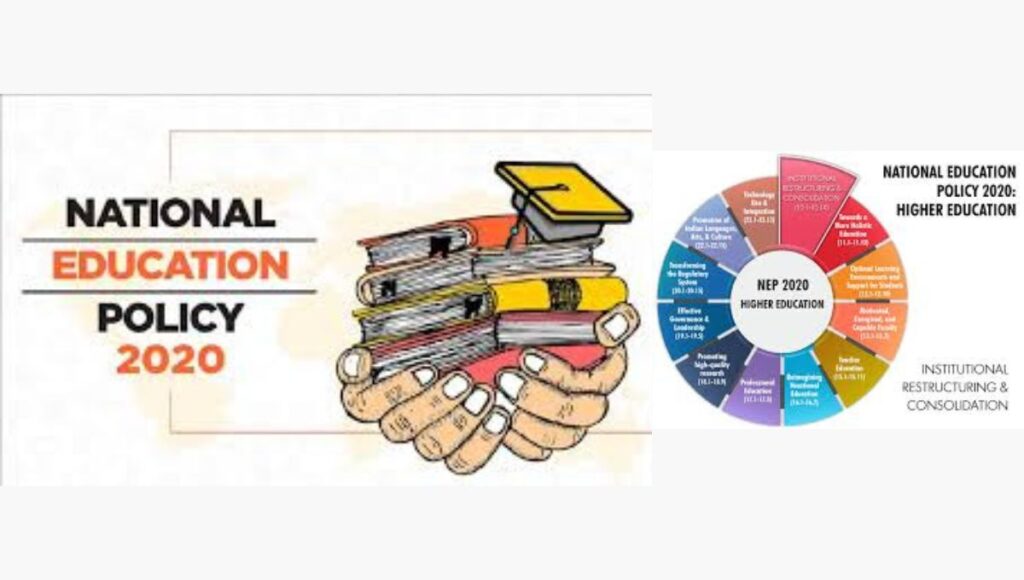
national education policy 2020: Education is more than just textbooks and exams—it’s the foundation for a better future. In a country as diverse and dynamic as India, a flexible, inclusive, and modern education system isn’t just a desire; it’s a necessity. That’s where the National Education Policy (NEP) 2020 comes in—a groundbreaking reform that promises to reshape the way we learn, teach, and grow.
Introduced after 34 years, NEP 2020 is not just another policy—it’s a vision. A vision that focuses on nurturing every learner’s potential, from the foundational years to advanced education. With its student-centric approach, emphasis on creativity, and love for lifelong learning, NEP 2020 is a major step toward a brighter and more empowered India.
Transforming School Education: The 5+3+3+4 Structure
One of the most noticeable and talked-about features of NEP 2020 is its new school structure—5+3+3+4. This model replaces the old 10+2 format and aligns school years with a child’s developmental stages.
The first five years, called the foundational stage, focus on playful learning, activity-based teaching, and early literacy and numeracy. The next three years, known as the preparatory stage, build on this with light academic content while still keeping learning fun and engaging. Following this is the middle stage, where students are introduced to more structured subjects and encouraged to explore and question. Finally, in the secondary stage, they are exposed to multidisciplinary learning, with more choice and flexibility, preparing them for life beyond school.
This structure not only respects the pace at which children learn but also gives them the freedom to enjoy their learning journey instead of just chasing marks.
A New Way of Learning: Curriculum and Pedagogy
NEP 2020 doesn’t just change how long we study—it also changes how we study. Traditional rote learning is being replaced by a more hands-on, joyful, and meaningful approach. The curriculum will now be lighter, allowing room for critical thinking, curiosity, and real understanding.
Teachers will be encouraged and trained to move beyond lectures. They’ll create classrooms where students are actively involved in discussions, experiments, and creative projects. Learning in the mother tongue or regional language until at least Grade 5 will help younger children grasp concepts better and feel emotionally connected to their education.
Moreover, technology will be smoothly integrated into the learning process, ensuring students stay future-ready in a world that’s constantly evolving.

Higher Education Reimagined
When it comes to colleges and universities, NEP 2020 brings a refreshing wave of change. Gone are the days when students had to choose one narrow stream and stick to it. The new policy encourages multidisciplinary education, meaning a student can now study physics alongside music or data science with history.
This flexibility makes learning more meaningful and relevant to individual interests and career goals. The traditional rigid degree paths are being replaced by programs with multiple exit and entry options—you can leave with a certificate after one year or rejoin later to complete a full degree.
The policy also emphasizes vocational education, research opportunities, and creating world-class universities that match global standards. By promoting innovation, critical thinking, and hands-on learning, NEP 2020 aims to make Indian graduates not just job seekers, but job creators and global contributors.
A Policy Rooted in Possibility
What makes NEP 2020 truly special is its heart. It cares about equity, inclusion, and excellence. Whether it’s supporting rural students with better resources, training teachers to be mentors, or encouraging creativity and innovation—this policy aims to bring real, lasting change.
India’s future lies in the hands of its learners. And with the National Education Policy 2020, we are finally giving them the environment they need to dream big, explore fearlessly, and achieve meaningfully.
Disclaimer: This article is for informational and educational purposes only. It reflects an interpretation of the National Education Policy 2020 and does not represent an official government publication. Readers are advised to refer to official documents or websites for precise policy details.
Read more
Pradhan Mantri Ujjwala Yojana 2025: Apply Online for Free Gas Connection
Atmanirbhar Bharat Scheme: Key Features, Objectives & Funding Explained
